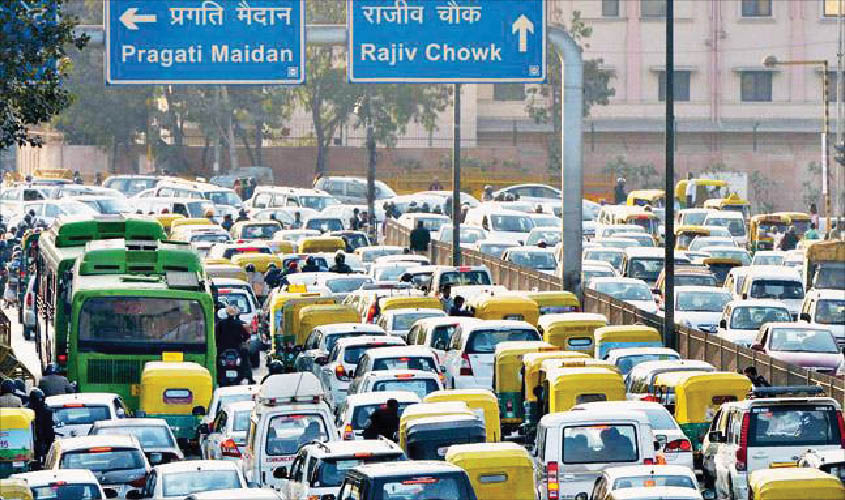Road safety organisations have hailed the new amended Act, which has increased manifold penalties for ‘indiscipline’ on roads.
New Delhi: As the major chunk of The Motor Vehicles (Amendment) Act 2019 comes into effect from this Sunday, road safety organisations have hailed the new amended Act that increases manifold penalties for “indiscipline” on roads, as they believe this would drastically improve road discipline and significantly bring down the rate of road accidents in India.
The Automobile Association of Upper India (AAUI) has called it a remarkable and a milestone endeavour which will go a long way to address traffic woes and reduce man-made road injuries and fatalities. The SaveLIFE Foundation has said that it was a long-standing demand of the Foundation and they strongly believe that it is a very positive step towards securing “our Indian roads as the new law will act as a deterrent”. The National Road Safety Organisation also echoed the same view and said that it is a landmark Act that would inculcate some discipline among road users in India. Road accidents in India claim thousands of lives every year and according to the SaveLIFE Foundation, 1,381,314 people have been killed in road accidents in the last 10 years in India, while 5,030,707 people were left injured. Experts claim that these accidents were mostly due to rash driving, over speeding and disobeying of traffic rules, all of which are avoidable.
The Motor Vehicles (Amendment) Act 2019 aims to bring down the rate of road accidents drastically in India. The Act has also amended the penalty provisions for disobeying traffic laws and has increased penalties five times. For example, for dangerous driving, the penalty has been increased from Rs 1,000 to Rs 5,000, while penalty for driving without a licence has been increased from Rs 500 to Rs 5,000, while for drunken driving, the penalty has been fixed at Rs 10,000 along with punitive provisions under the new law.
However, while praising the new amendments in the Motor Vehicles Act, these road safety organisations also raised concerns about the enforcement, implementation of the law and the poor road infrastructure in the country.
Dr S. Sathyapal, President of The National Road Safety Organisation, told The Sunday Guardian, “The amendments are very positive, but what we need to look into is how these are going to be implemented by the enforcing authorities. We cannot give scope to corruption here or else the motive of this law would be diluted. To check this, what we will need is to adopt better technologies and take the help of advanced technologies like body worn cameras, speed cameras and traffic violation cameras to prosecute offenders to weed out any scope of corruption and human interference.”
Piyush Tewari, founder of SaveLIFE Foundation, told this newspaper, “This law in itself provides provision for the adoption of technology for its implementation. Certain sections in the law mandate for the use of technology and the government with time will be incorporating technology into implementing this Act.” Tewari also raised concerns about the road infrastructure in India and said that the first task of the government and the Ministry of Road Transports and Highways should be to put up proper signages on roads.
T.K. Malhotra, President of the AAUI raised concerns about how Indian roads are suffering badly from a lack of infrastructure. “The law imposes a fine of Rs 10,000 or up to six months in jail or both for blocking way of emergency vehicles. The ground reality is that Indian roads have no exclusive lanes marked as ‘Emergency Vehicles Only’. How do we expect drivers to shift vehicles from their position to clear way for an emergency vehicle to pass or overtake?” Malhotra asked.
He added: “Driving without a licence and driving but not having a licence at all are two different offences. Driving without licence can be misinterpreted to mean that you do have a licence, but are not carrying while on the wheels. It should be a punishable offence, but caught driving or riding for not having a licence at all should attract more severe punishment and fines.”

